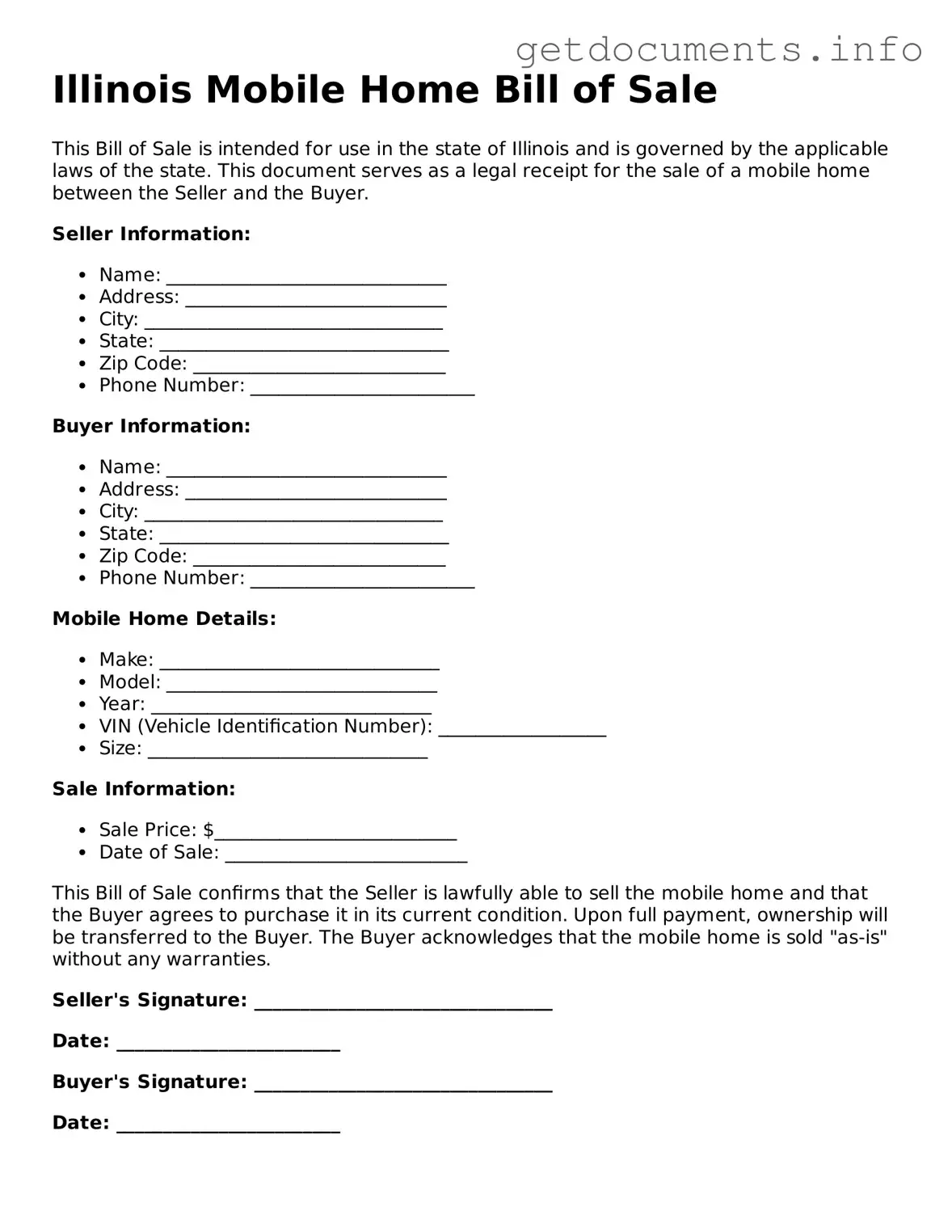Free Mobile Home Bill of Sale Template for Illinois
The Illinois Mobile Home Bill of Sale is a legal document used to transfer ownership of a mobile home from one party to another. This form outlines essential details such as the buyer, seller, and the mobile home's specifics, ensuring a smooth transaction. For a hassle-free experience, consider filling out the form by clicking the button below.
Access Mobile Home Bill of Sale Editor

Free Mobile Home Bill of Sale Template for Illinois
Access Mobile Home Bill of Sale Editor
Got places to be? Complete the form fast
Fill out Mobile Home Bill of Sale online and avoid printing or scanning.
Access Mobile Home Bill of Sale Editor
or
⇩ PDF File
